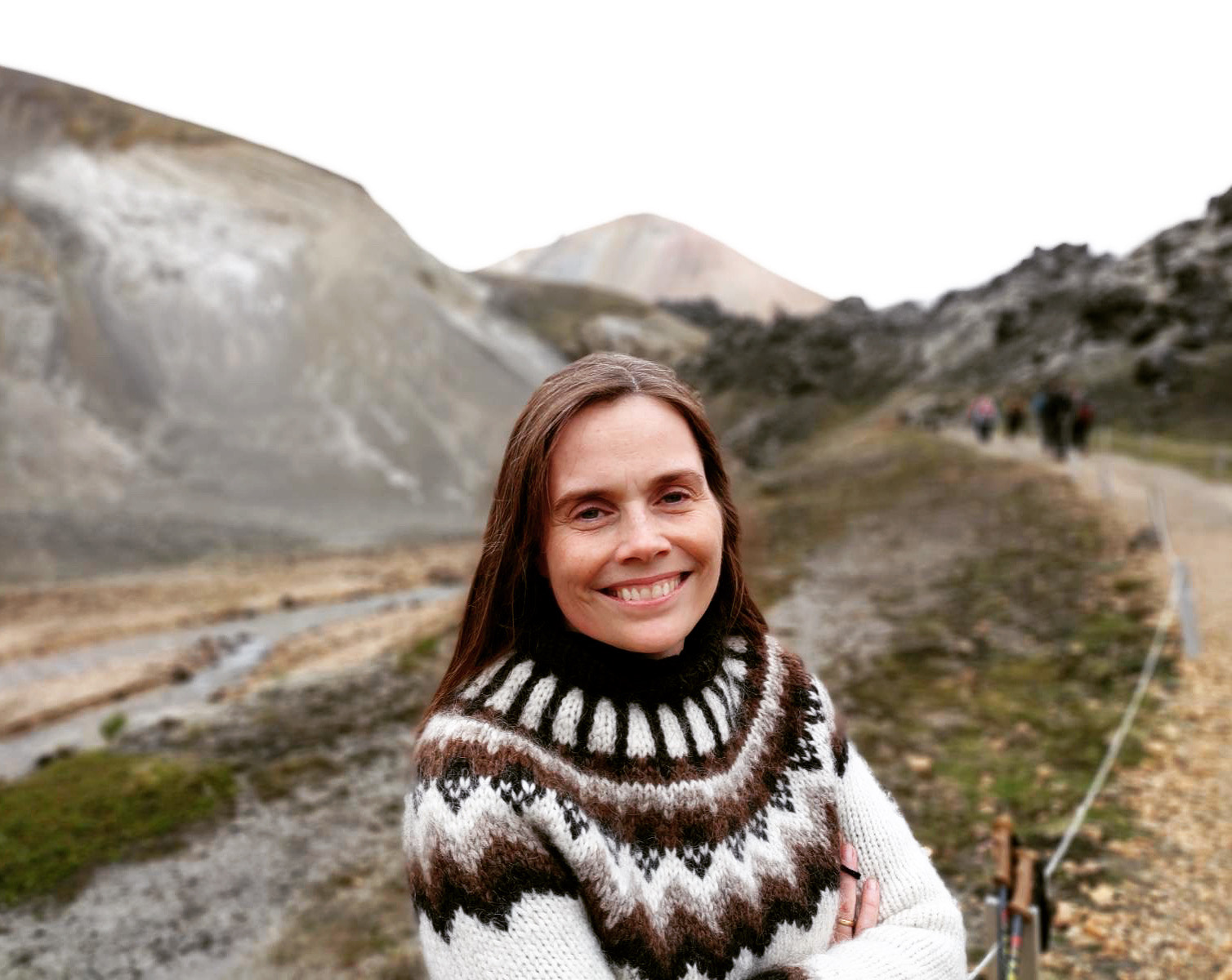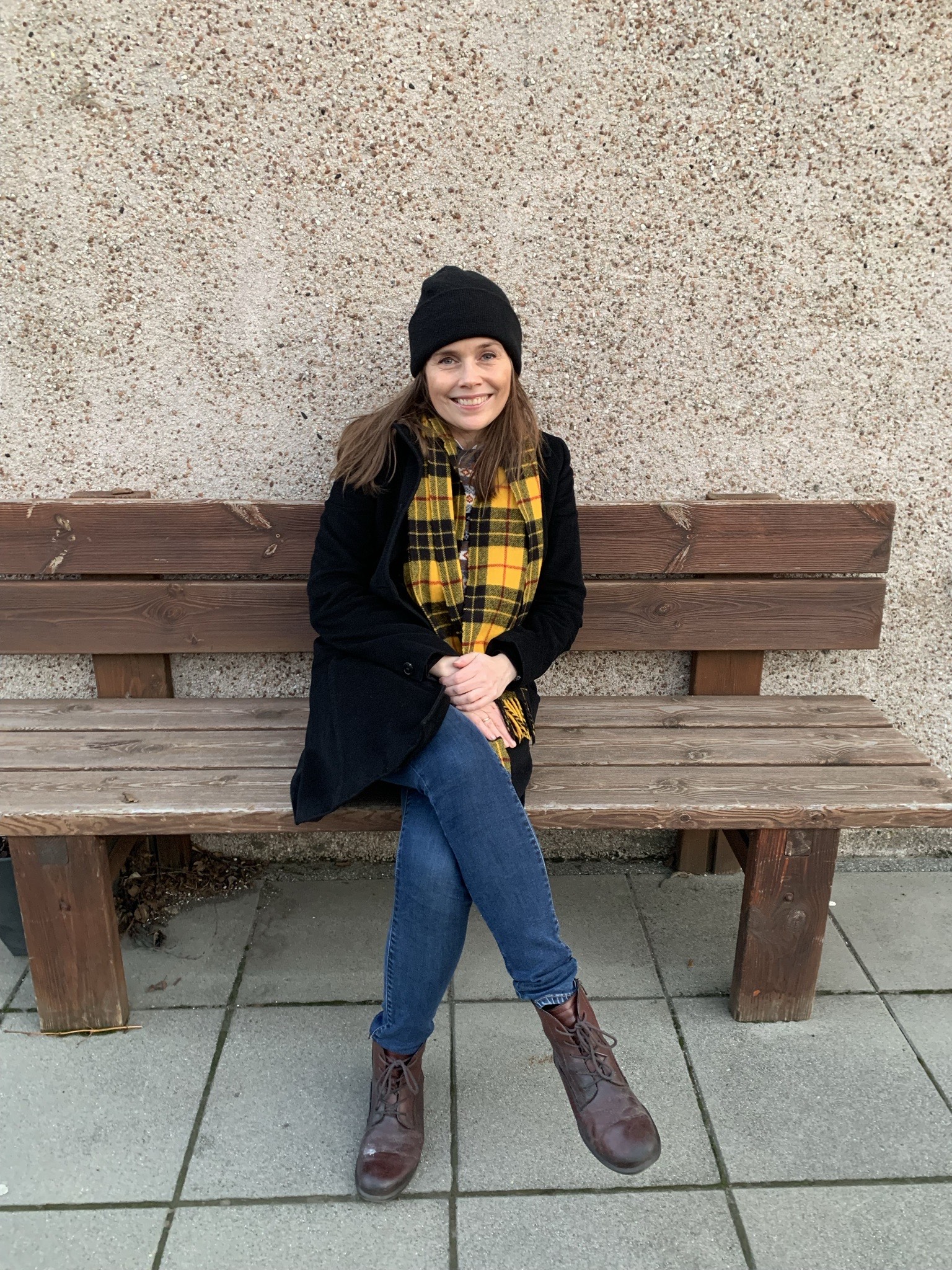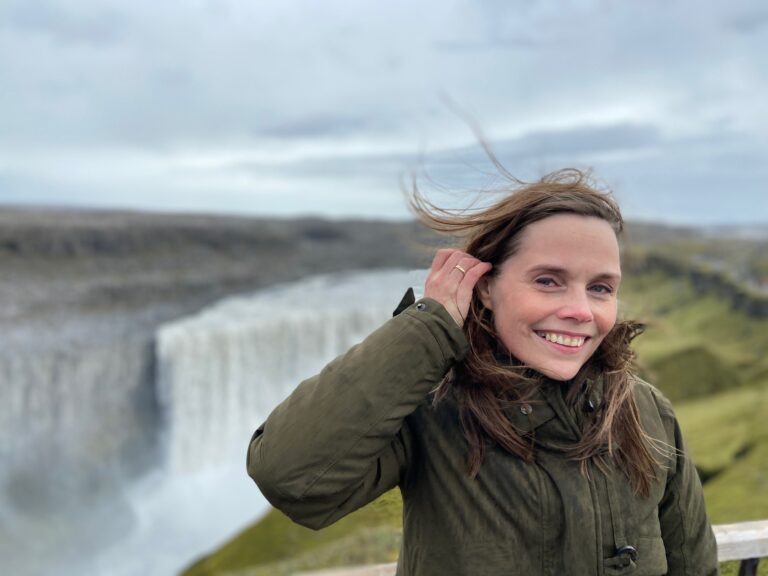Prime Minister Katrín Jakobsdóttir on Oslo, hate speech, and her 21-point action plan for LGBTI rights.
Despite many steps forward for LGBTI rights in Iceland, the community is now facing a backlash that some members say was expected. Many activists and leaders say we’re not doing enough to speak out and stand up for our rights and that we need more protection enshrined in law. Speaking to GayIceland about the wave of backlash the queer community in Iceland has seen, Prime Minister Katrín Jakobsdóttir says part of this reaction may be related to increased rights for trans people but Iceland passed a legislation on gender autonomy in 2019.
“This legislation pushed the barriers. We’ve had more of an open debate about the rights of trans people specifically and we’ve seen a lot more open hate speech and degrading behavior, which is gravely concerning.”
Though she can’t say it’s directly related to the legislation, Katrín also thinks it may have something to do with all of us being stuck inside and online during the pandemic that has gotten certain people down into rabbit holes they may have otherwise avoided.
“With new technologies [hate speech] can spread rapidly. You see changes happen so swiftly in how we interact. During the time of covid, you also saw a lot of young people entering this world of watching Youtube and TikTok videos all day where this behavior is shown. In a way society changed overnight to a place of isolation where people didn´t meet face to face. Now we’re kind of going out again.”
Seeing each other out in the street again may help with tolerance and acceptance, but Katrín says she’s still surprised to see how much hate speech and backlash there’s been.
“This backlash we are seeing is horrifying and you think “wow, how does this happen?” in spite of our success in pushing barriers and really making progress with legislation. Visibility has increased. But then again those who have been campaigning for the rights of trans people say that increased visibility means increased hate speech.”
From her perspective, the answer to this backlash is twofold. First, Katrín is targeting hate speech with the law to hinder anyone that’s making threats against minorities. Second, it may be that these changes in legislation need to proceed changes in culture. Or is it the other way around?
“What we’ve decided to do is tackle hate speech specifically. Not just hate speech towards LGBTI people but also those of different ethnic origins and other vulnerable groups. I put together a group in my office that will deliver proposals later this year. And I’m not just talking about legislation, I’m also talking about culture and attitude. What we have seen is sometimes you transform political policy into legislation but the culture doesn’t change until later. A perfect example of that is the Icelandic legislation on shared parental leave where we changed the legislation in 2000 but we didn´t see the change in attitude and culture until a decade later mainly because it’s very deeply rooted. So there we had very progressive legislation and didn’t really see the change in attitude until later. We have been changing the legislation when it comes to LGBTI rights, definitely. The urgent task we must tackle now is to accelerate the change in culture and attitudes.”

However, Iceland looks so queer-friendly to the outside eye. After all, we have a very big, family-friendly pride and we’re in 9th place on the ILGA Europe equality map. So what gives? Where is this backlash coming from? And how do we address it?
“The good thing about Iceland is that even though we have been making progress, we kind of never stop,” she laughs. “The gender equality issue is a good example because we’ve been on the top for the last 13 years but we are always like “ok, but we’re not there yet.” Part of this is the fact that we have a history of a very strong feminist movement and one of the reasons we have achieved a lot of progress on LGBTI rights is because of a similar strong grassroots movement.”
“So, the milestones we have reached are not just because of governments and politicians, it’s not least because the grassroots movement is so strong in Iceland. That’s something that we seem to be doing right, to create an atmosphere where people have the space and power to keep on fighting. A great example is the pride festival in Iceland, people are protesting and fighting but it’s also about showing support. It´s common for whole families to attend, generations march into town together, to show support.”
“This backlash we are seeing is horrifying and you think “wow, how does this happen?”
In late June, London Pub in Oslo, Norway was attacked by an Islamic extremist intent on showing his disapproval of the LGBTI community. Following the attack, there was an outpouring of support and shock from the European and international communities. Katrín tweeted in Norwegian: “Shocking to hear about a fatal attack on the LGBTI community in Oslo. We support Norway in preserving human rights and the right to love for all.”
When asked about how she felt after hearing the news, Katrín mentions that acts of violence are often preluded by hate speech.
“Oslo was a very violent example of this hate, an act of hate towards the rights of people to be themselves and love whomever [they choose]. What I want to tackle in the hate speech group is a reaction to this escalation in hate. We have seen that when hate speech is acceptable, violence follows. When nothing is done you are legitimizing attitudes and opinions that can prove dangerous.”
“What we’ve decided to do is tackle hate speech specifically. Not just hate speech towards LGBTI people but also those of different ethnic origins and other vulnerable groups.”
“I think the attack in Oslo really touched us here in Iceland because obviously they are some of our closest neighbors, our history and culture is common, and we don’t really expect violent crimes to happen there. One of the challenges we face is that we need to think about this type of violence in regards to a lot of different groups as I mentioned, vulnerable groups that are subject to this kind of hate speech, but also we need to think about it pan-politically. It shouldn’t be a Left-Green issue. It should be an issue that politicians unite about.”
Katrín also hopes that her 21-point Governmental LGBTI Action Programme addresses some of these foundational principles. One of the pieces would be a survey focusing on the attitudes and situation of LGBTI people within the industries of fisheries and agriculture.
“There are a lot of projects concerning education because education is really all about raising awareness. Since this plan was put in motion there was a research on LGBTI people in the labor market in Iceland and I thought “ok, this really shows the need for education and awareness everywhere in our society” because a lot of the findings of the research such as inequality in the labor market when it comes to LGBTI can be [attributed] to people not having that understanding. I think the best way to deal with this is to keep the conversation alive among professionals, elected representatives, the police, people working with children and teenagers, extracurricular activities.”
One of the biggest institutions in need of queer education is the Icelandic school system, where organizations like Samtökin ‘78 think we don’t need more research but swift action instead. After all, primary school has always been more difficult for queer kids so how much research do we need to show something everyone already knows? At the moment only a handful of municipalities have an educational partnership with Samtökin ‘78. Katrín defends her plan for more research saying that for the government to move on something like this there has to be a solid foundation to bolster the move.
“I’ve heard that criticism too. The work of Samtökin ´78 is very important but I also think it’s very important that the state does its own research. Now, I am aware that people may say this is unnecessary but I think it’s important because you need to have that strong foundation if you want to achieve results. For example with the education system, you need to have a very firm ground to stand on and be aware of what is broken in order to fix it. In my time as the Minister of Education one of the things that we implemented in the curriculum was actually education on human rights and democracy. In my opinion, just as a human being, this should be something that you shouldn’t have to debate but it took me two years to implement this in the curriculum,. So, I know that people want to do things faster but I also know that it takes time and if you want changes to have an impact and last it’s important to have very solid ground.”

Although this plan is only another step, Katrín thinks it’s important that the government does this work. Community organizations that were consulted in the process of making it say the plan doesn’t go far enough. Katrín explains:
“As a plan, it’s a limited paper. At the same time, it’s groundbreaking work because we’re doing these things for the first time. Just as in the fight for gender equality we have seen changes happen gradually over the years and progress is indeed being made but at the same time you still feel like everything is so slow. The big task is how we implement these thoughts on LGBTI rights into everything we’re doing.
The interesting bit about working on a plan like this is that you’re trying to really get all of the ministries and the institutions to do their part. So, we have some projects that some people would say “ok, this is kind of specific” like LGBTI people in fisheries and the agriculture sector but this is because we’re trying to work broadly. We’ll derive a lot of experience from this plan and implementing it and learn before we do the next one.”
One of the most notable points in Katrín’s action plan is a change to the regulations on blood donation in Iceland that has the purpose to abolish the discrimination which blood donors have been subject to on account of their sexual orientation. Katrín says this action is long overdue after many speedbumps on the road to getting it done.
“I think the [changes to the blood donation rules] will be very important because it’s been in progress for quite some time but there’s a really broad consensus in parliament that this is something that should be done. It´s important for us who are ministers when we get very broad support for such an important matter.”
Then Katrín wants to set up a human rights insitute in Iceland to continue work like this. She says human rights has always been at the core of Iceland’s principles, but that it’s taken some time to get those principles into practice:
“I was the Minister for Education back in the day when we put six new pillars in the curriculum, one concerning human rights and democracy, one about gender equality. Actually it has been part of the legislation in Icelandic primary school since 1976 that children should learn about gender equality but it was only put into curriculum in 2011. This shows you that you really can make positive changes to legislation but is anybody really doing anything with it? Sometimes for us politicians we tend to think “ok, I’m just going to put this into legislation” but you also have to provide the environment so people can actually implement what it says in the legislation. You have to give the teachers some tools to work with what’s in the law in this case.”
“The next step I’m taking in these issues, because I think the legislation on gender autonomy was quite a big step, the next step when it comes to human rights in general is a new human rights institute in Iceland. It’s something we probably should have done many years ago.”
“The next step I’m taking in these issues, because I think the legislation on gender autonomy was quite a big step, the next step when it comes to human rights in general is a new human rights institute in Iceland. It’s something we probably should have done many years ago. We tend to think everything’s just ok because we’re so small but there are so many things we’re talking about when it comes to disabled people for example that we can do a lot better. Such an institution will be fundamental so we can actually fully implement the human rights convention on disabled people for example. So there we’re also going to see a new tool in the fight not just for disabled people but for LGBTI people, people of different ethnic origins, etc.”
Acknowledging the long waitlist for gender confirming healthcare at Landspítalinn and holding people accountable for hate speech, Katrín mentions that we have to start thinking more about how to put the horse before the cart instead of the other way around:
“There are two anti-discrimination laws that we adopted 2018. Equal treatment in the labor market and equal treatment outside the labor market. Both legislation regards equal treatment irrespective of race, ethnic origin, sexual orientation, gender identity etc. This spring we changed the general penal code to include a provision on hate crime. So we have been making a lot of progressive changes in legislation but we need to think a bit more about culture and how we are doing things.”

“We also have to think about the implementation and how we’re going to do it. There’s a lot of work to be done for example in the legislation on gender autonomy when it comes to providing sufficient services. That is something that we need to work on. One day I’m going to leave this office and I hope that one can say we really strengthened the infrastructure for human rights in Iceland when it comes to legislation and culture but also institutionally.”
To read Katrín’s full 21-point action plan, click here.


